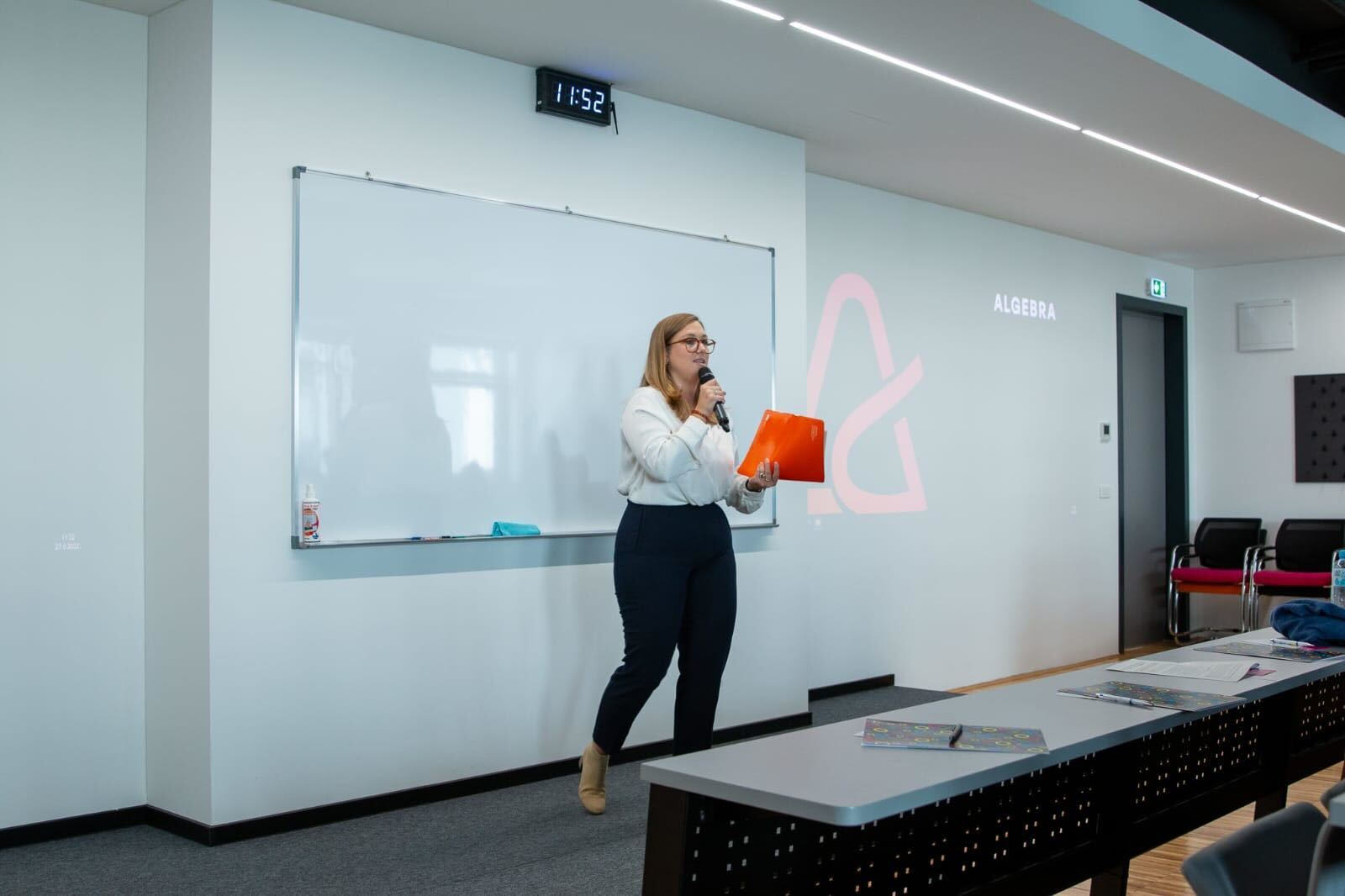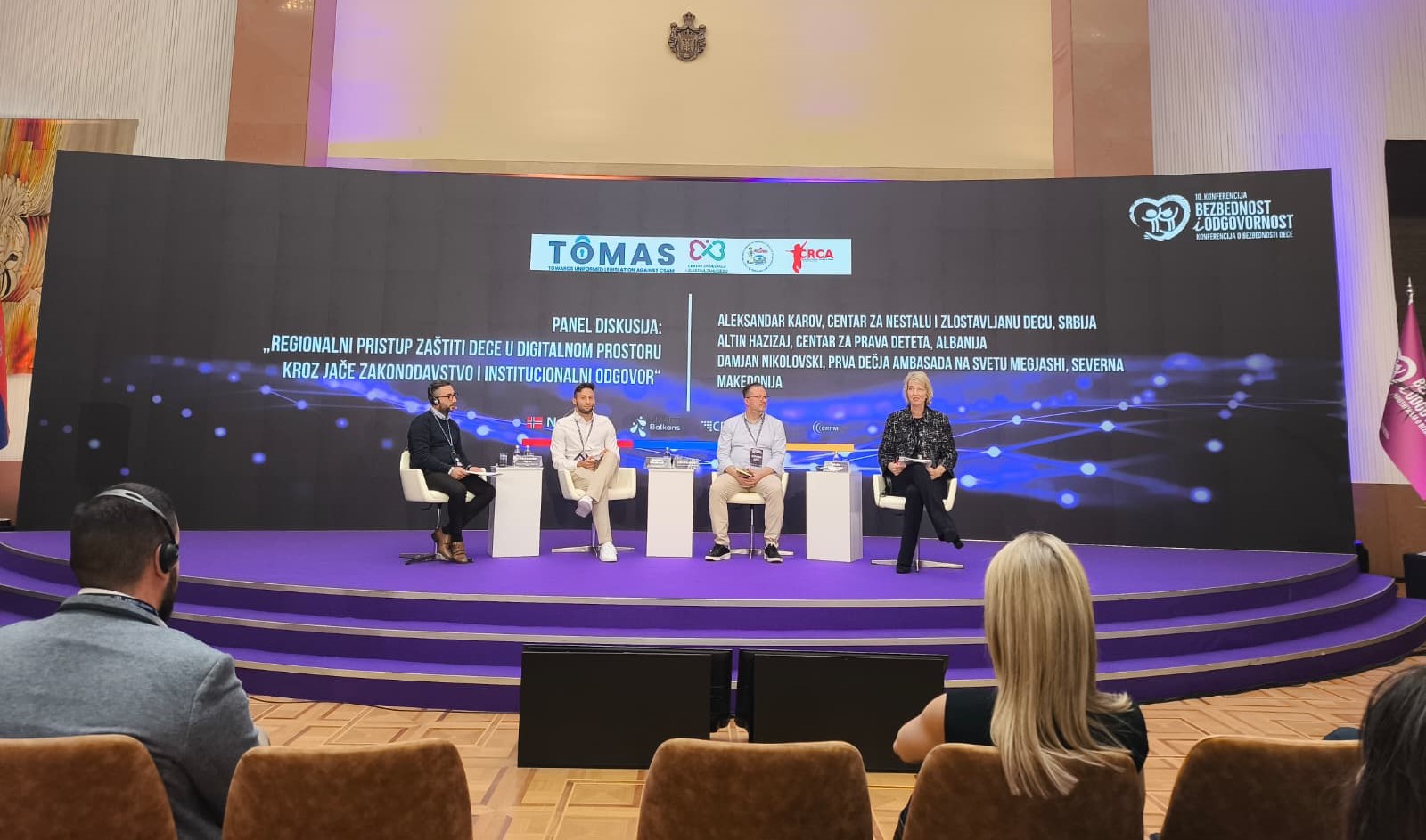Building digital literacy and skills of children is powerless without safety-by-design
Our Policy & Advocacy Officer on Online Safety Fabiola Bas Palomares shared insights on the EU’s legislative action to protect children online at the RAYUELA conference
On 27 September Eurochild was invited to take part in the RAYUELA conference in Zagreb, Croatia to share our knowledge on children’s digital rights. At Eurochild, we are committed to making the internet a better, safer, and more inclusive space for children around Europe.
The RAYUELA project is an initiative of scholars, psychologists, engineers, and cybersecurity experts, aiming at tackling cybercrime, specifically against children. As the new generations become increasingly digitalised, so are the risks of online crimes: RAYUELA gathers insights about how children interact with cybercrimes while educating them on facing these risks. This final conference presented the project results and had experts present policies put in place to tackle these threats.
During her intervention, Fabiola Bas Palomares highlighted that the protection of children’s rights online is twofold: building digital literacy and skills of children is powerless without safety-by-design. Staying safe cannot be the responsibility of children, and lawmakers and online service providers must make their platforms and software safer for the children.
The reality is that most children spend a majority of their time in digital spaces that are not designed for them. As outlined by the UN General Comment No.25 on children’s rights in the digital environment, States must put in place legislation that obliges platforms to uphold specific standards to protect children from harmful content, conduct, contact and contract. This includes high privacy and security settings by default for underage accounts, restricting access to harmful images and videos (i.e., self-harm, violent or sexual content), banning algorithms that exploit children’s vulnerabilities (i.e., addictive content, targeted advertising), or measures to combat child sexual abuse online, among others.
To ensure the effectiveness of these safeguards, platforms need to know when the user is a child. Eurochild supports the implementation of inclusive child-friendly age verification and assurance methods in the EU. Legislation must be tech-neutral and future-proof to ensure it is adaptable to the rapid evolution of children’s needs and new technologies.
Children must have a say in the drafting and implementation of legislation concerning their online rights. As Fabiola Bas Palomares put it, “There is no file too technical or difficult for children to be discussed with, as long as you stick to the core child participation principles.” Eurochild is consulting children across 15 countries as part of the VOICE Project, which gathers children’s views and inputs on the latest policy developments in digital legislation, focusing on their online safety.
At Eurochild, we believe that policy-makers have to upkeep their commitment to ensuring that the online spaces used by children are safe and cater their specific vulnerabilities, while ensuring their digital empowerment. Children’s online rights must be upheld, as they have the right to enjoy internet products safely and be consulted for digital policies affecting them.





